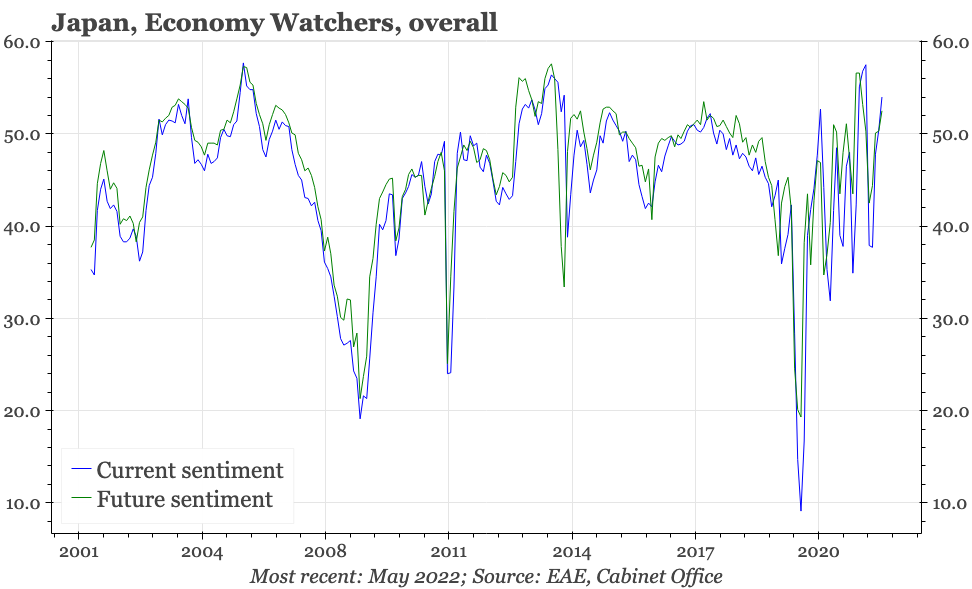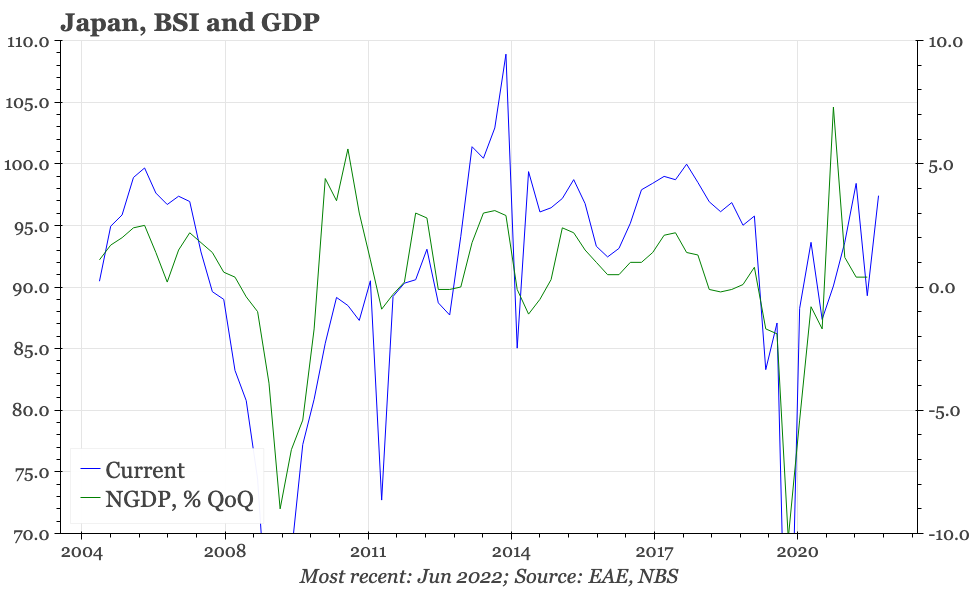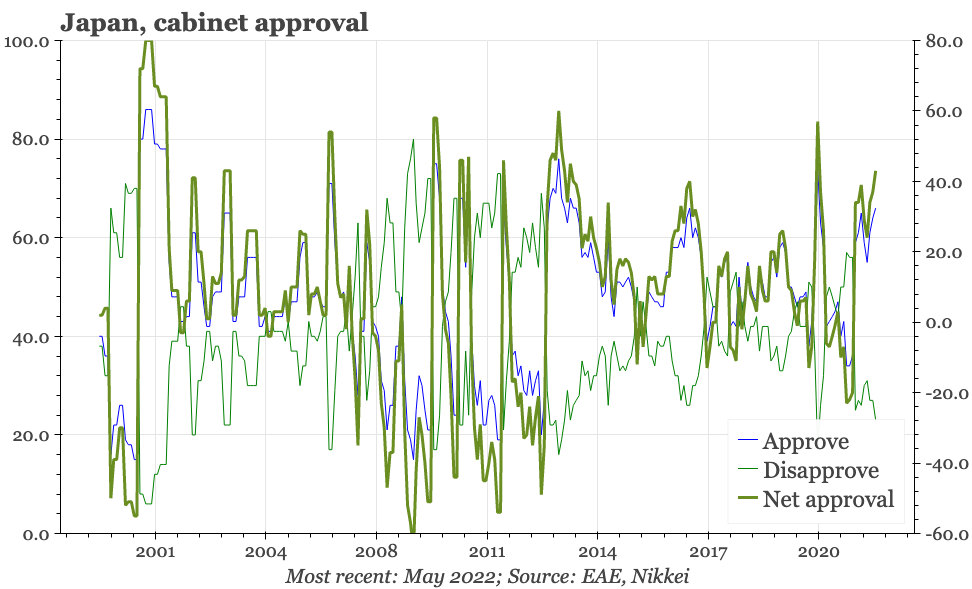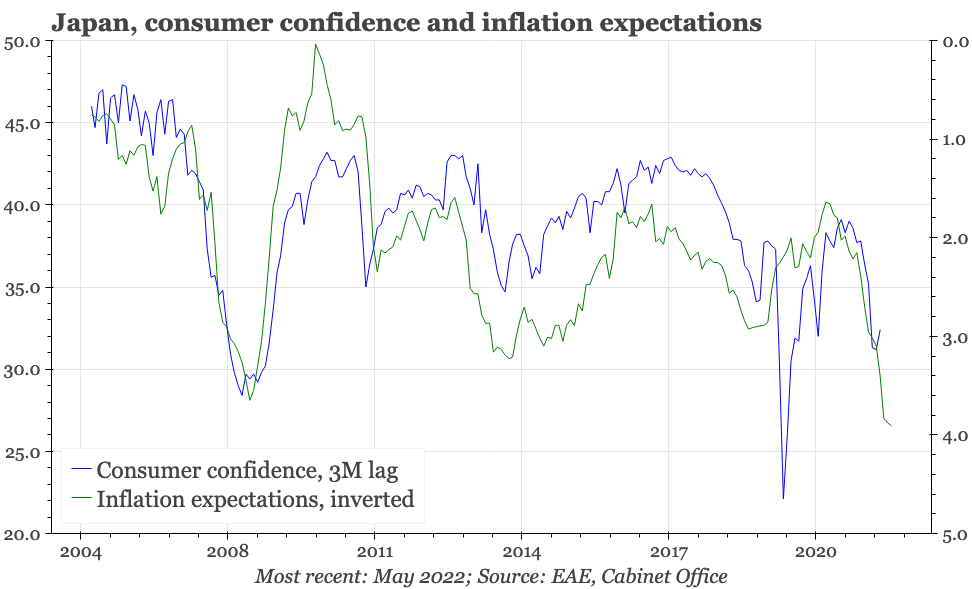Japan – BOJ meeting
The BOJ didn't move today, and while the central bank is facing strong market pressure to move, so far at least, there's not so much domestic political pressure.
The BOJ didn't change policy today, and so did not yield to the pressures coming from the market to tighten. The one concession was the inclusion in the statement of a pledge to “pay due attention to developments in financial and foreign exchange markets”; everything else on policy was unchanged.
Unsurprisingly, the pressures coming from the market didn't evaporate with the BOJ's show of intransigence. Once the central bank's statement came out, the JPY sold off again.
Aside from the markets, the BOJ doesn't look particularly pressured to move. Despite the sharp rise in input costs, leading indicators for the cycle have been improving. Consumer sentiment is weak, but has ticked up in the last month. And, the weakness of consumer confidence hasn't fed into dissatisfaction with the government. That is perhaps most important, suggesting the BOJ isn't coming under huge political pressure to do something.
The market pressures though are real, and at some point a weakening JPY and so yet-higher commodity costs could start to undermine the domestic economy. It is possible corporate margins will be the trigger for the BOJ to change. However, a more likely transmission mechanism would be a cost-of-living crisis for consumers that both derails the incomplete post-covid recovery in services, and results in a sharp drop in support for the government. If that is right, then rather than the JPY in and of itself, the indicators to be watching are government approval ratings, consumer confidence, and service industry sentiment.




